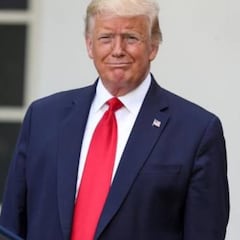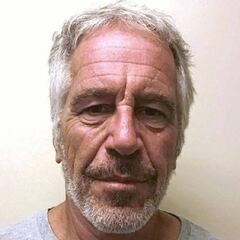Extradition of Julian Assange to the US: why has it been blocked and what are the UK judge's reasons?
US prosecutors have said they will appeal against a British judge's ruling over the extradition of the WikiLeaks founder, and there has been reaction across the globe.

A British judge ruled on Monday that WikiLeaks' founder Julian Assange should not be extradited to the United States to face charges of breaking a spying law and conspiring to obtain secret US documents by hacking government computers.
Why was Julian Assange extradition blocked?
US authorities accuse Australian-born Assange, 49, of 18 counts relating to Wikileaks’ release of vast troves of confidential US military records and diplomatic cables which they said had put lives in danger.
His lawyers had argued the entire prosecution was politically-motivated, powered by US President Donald Trump and that his extradition posed a severe threat to the work of journalists.
We welcome the fact that Julian Assange will not be sent to the USA, but this does not absolve the UK from having engaged in this politically-motivated process at the behest of the USA and putting media freedom and freedom of expression on trial.
— Amnesty International (@amnesty) January 4, 2021
At a hearing at London's Old Bailey, Judge Vanessa Baraitser rejected nearly all his legal team's arguments but said she could not extradite him as there was a real risk he would commit suicide and ordered his discharge.
"Faced with conditions of near total isolation ... I am satisfied that the procedures (outlined by US authorities) will not prevent Mr. Assange from finding a way to commit suicide," she said.
US appeal and global reaction
US prosecutors have indicated they will appeal against the judge's ruling.
WikiLeaks' Kristinn Hrafnsson: 'It is a win for Julian Assange - but it is not a win for journalism. The US government should drop their appeal and let Julian go free. #AssangeCase pic.twitter.com/1b1J2qQQAf
— WikiLeaks (@wikileaks) January 4, 2021
Lawyer Edward Fitzgerald said he would apply for bail for Assange on Wednesday, pending that appeal.
Shortly after the announcement, there were reactions to the news from around the globe.
Julian Assange's partner, Stella Moris
'Today's victory is the first step towards justice in this case. We are pleased that the court has recognised the seriousness and inhumanity of what he has endured and what he faces.
'We are extremely concerned that the US government has decided to appeal this decision. It continues to want to punish Julian and make him disappear into the deepest, darkest hole of the US prison system for the rest of his life.
'I call on the president of the United States to end this now: Mr President, tear down these prison walls, let our little boys have their father. Free Julian, free the press, free us all.'
Rebecca Vincent, Director Of International Campaigns for Reporters Without Borders
'We welcome this decision on the grounds that he will not be extradited because of his serious mental health issues. But we are very concerned about the substance of the decision. We disagree with the judge's assessment that this case was not politically motivated, that it is not about free speech.
Great news! Julian Assange will not be extradited. Freedom of speech and right to information must always prevail.
— krls.eth / Carles Puigdemont (@KRLS) January 4, 2021
Congratulations Julian, @MrsC_Assange and @StellaMoris1!#FreeAssange
'We continue to believe that Mr Assange was targeted for his contributions to journalism and until the underlying issues here are addressed, other journalists, sources and publishers remain at risk. So we will continue to advocate for the broader issues at stake even though we do welcome the fact that Mr Assange will not be extradited to the United States.'
Edward Snowden, US Whistleblower who worked with Wikileaks
'Thank you to everyone who campaigned against one of the most dangerous threats to press freedom in decades ...
'Let this be the end of it.'
Alan Rusbridger, former editor of The Guardian newspaper, which published material from Wikileaks
'The judge's reasoning was hardly a ringing endorsement of either WikiLeaks or the function of journalism. But the extradition outcome is the right one and I hope the US will now drop the pursuit of Assange (and @Snowden) and let them get on with their lives.'
Christine Assange, Julian Assange's mother
'I implore Pres Trump & Pres elect Biden to order (US prosecutors) to stand down. The decade long process was the punishment. He has suffered enough.'
Glenn Greenwald, US journalist who worked with Snowden
'This wasn't a victory for press freedom. Quite the contrary: the judge made clear she believed there are grounds to prosecute Assange in connection with the 2010 publication.
'It was, instead, an indictment of the insanely oppressive US prison system for security 'threats.'
Carles Puigdemont, former Catalan leader and now member of the European Parliament
Related stories
'... a victory for freedom of expression and information.'
Yanis Varoufakis, former Greek Finance Minister
'... Though Julian is not safe, yet, a ray of hope seems to have pierced a long, dark shadow over human decency and press freedom.'

